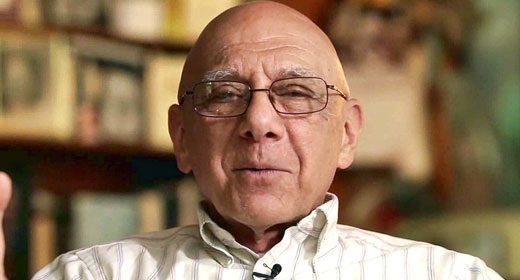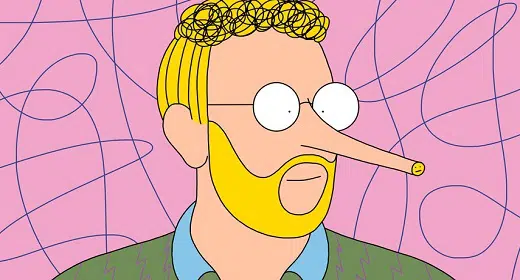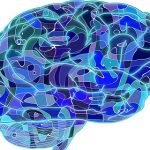by Arthur C. Brooks: Real happiness starts with telling yourself the truth, even when it hurts…
“How to Build a Life” is a weekly column by Arthur Brooks, tackling questions of meaning and happiness. Click here to listen to his new podcast series on all things happiness, How to Build a Happy Life.
No one wants to be seen as a liar. Liars are considered untrustworthy at best and immoral at worst. And yet, we are perfectly content to lie to ourselves all the time. “I’ll enjoy this sleeve of Oreos today because my diet starts tomorrow,” I might tell myself. Or, “I love my job; who cares that I complain about it constantly?” Or even—ironically—“I am always honest with myself.”
Deceiving yourself shouldn’t make logical sense. After all, lying involves telling someone something you know to be untrue. When you are both the liar and one lied to, this means you have to both know the truth and not know the truth. In practice, that means willfully disregarding key knowledge to arrive at a conclusion that is more convenient than what the facts appear to suggest.
Everyone self-deceives, but that doesn’t make it harmless. At high levels, it is associated with poor mental health. At moderate levels, it can temporarily protect the self-deceiver from bad feelings but still presents a barrier to the deep well-being that comes from living with integrity. To be really happy, we must learn to be completely honest with ourselves.
elatively few people are completely honest with others. Research from the University of Massachusetts at Amherst on undergraduate students found that 60 percent lied at least once during a 10-minute conversation, and many lied multiple times. Distorting reality inside your own head might be even more common. As one scholar summarizes the evidence, “All humans have self-deceptions.” No one is completely honest with herself, because, well, the truth hurts. Accuracy in perceiving the world is actually a common feature of depression, sometimes referred to as “depressive realism.” Life is simply full of harsh realities. If you want a glimpse into this, consider the last time someone left a room you were in and you cracked a joke at his expense. Deep down he knows this is happening, because he probably did the same thing once when you left the room, yet he has to disregard this knowledge in order to get on with his day.
Sometimes, people engage in self-deception to protect their ego or gather courage. Former Senator Al Franken famously embodied that phenomenon on Saturday Night Live when he played an irritating, cloying self-help television-show host named Stuart Smalley who used the catchphrase “I’m good enough, I’m smart enough, and doggone it, people like me.” Similarly, if talking to crowds isn’t your forte, you might try to boost your courage before a scary presentation by declaring, “I am a great public speaker!” At a more grandiose level, the entrepreneur convinces himself that his harebrained scheme is a truly great idea.
To fake it ’til you make it is one thing; to fake it forever, even to yourself, is entirely different. Such is the case if your success at work or school is the result of cheating or preferential treatment but you choose to chalk it up to your own merit. The psychologist Paul K. Piff and his colleagues showed in a 2020 experiment that humans tend to appreciate the role of luck more when theirs is down than when they come out on top. For example, your co-worker might choose to think that her last promotion was entirely a consequence of her excellent work; others might notice that she is also the boss’s niece.
Lying to yourself about merit justifies unfair advantage and makes real merit harder to discern and reward. That’s bad enough, but self-deception becomes downright dangerous when it denies truths that are painful but important to face, such as an abusive relationship or lethal habit. In people who struggle with substances, denial can serve as a mechanism to maintain dependence and avoid the painful process of rehabilitation. In 2016, scholars found that alcohol and drug addicts exhibit elevated scores of self-deception, including active denial (e.g., “I can quit anytime I want”) and selective amnesia (e.g., “I wasn’t drunk last night”).
These self-lies delay the changes we need to make, and abet our lies to others. In fact, self-deception is a classic technique of manipulative persuasion. As the old saying goes, “It’s not a lie if you believe it.” And indeed, the biologist Robert Trivers has shown in his experiments that when people are tasked with making a particular argument, they purposely resist hearing evidence to the contrary. In other words, the salesman telling you that the lemon you are looking at is the finest car ever has probably convinced himself that it is.
All that self-deception—whether it’s about your skills or your relationship with substances—takes a lot of work to maintain. Consider procrastination, a form of self-deception that can be trivial (“I’ll unload the dishwasher later”) or catastrophic (“I’ll call the doctor next week about that chest pain”). This form of self-deception is costly not only because avoiding problems can make them worse but also because the procrastinator must do the mental work of a task over and over, without reaping the rewards of actually getting it done. Why write “Change banks” on your to-do list for months on end instead of doing it once and being free of the task?
To maximize your near-term happiness without doing excessive harm to others, the self-deception formula might seem to be “just a little to protect your feelings and make life easier.” Maybe you convince yourself that others admire you, plus you throw in a little harmless procrastination here and there, but never deny realities that are dangerous to you and others, or lie to yourself so you can manipulate others.
But what about your long-term happiness? Living in a cocoon of falsehoods may be comforting, but it is like experiencing bliss at the end of an opium pipe: It will never lead you to the deepest kind of satisfaction. That contentment can be found only within the true version of yourself. The French existentialist philosopher Jean-Paul Sartre saw all self-deception, no matter how mild, as a form of what he called “bad faith”: an unwillingness to discover our essence as conscious beings and take true responsibility for ourselves. Ignorance may be bliss, in this view, but it is an irresponsible waste of a life.
To be sure, Sartre was a notorious downer; he recommended that one live “without a future, without hope, without illusion.” But his basic point is a good one. Personal integrity is absolutely necessary for personal progress, which psychologists show is a central ingredient of happiness. Progress requires knowing honestly where you are compared with where you have been.
If you are willfully oblivious to your flaws, you can’t correct them. As my colleague Steven Pinker, the author of the new book Rationality: What It Is, Why It Seems Scarce, Why It Matters, reminded me by email, “Whatever advantages self-deception may have in motivation … it has to be balanced against the obvious downside of not learning from mistakes.” Research shows that self-deception is associated with an inability to see our own flaws, which makes self-improvement harder. Refusing to admit that I am a bit neurotic might make me feel better in the moment, but it also discourages me from undertaking efforts to change for the long-term good of myself and those around me.



















































